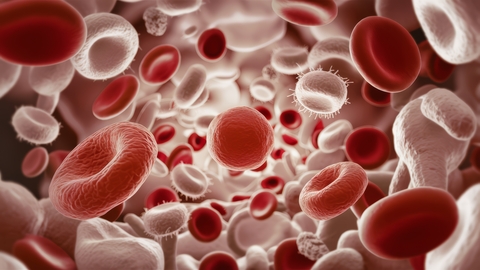
They’re all eating this 1 food we never eat
Unsubscribe | Report as spam | Change email preferences
Story-At-a-Glance
Hey, Matt Cook here, and imagine a tropical paradise, a beautiful island with even more beautiful women…
An island where everyone eats natural, healthy diets – and as a result have one of the world’s lowest rates of chronic disease…
This island is real – but researchers have discovered that you don’t have to live there to get these healthy benefits.
In fact, you don’t even have to eat the same diet – you just have to eat this 1 food…
—-Important Message from Megan—-
This stops the testosterone leak
My husband has really been through the wringer lately…
He’s been struggling with his drive and performance, and he’s only 53 years old!
But here’s the thing… After finding some online forums talking about this I discovered he’s not alone… not by a long shot…
Did you know most guys suffer from performance problems and a lack of drive by the time they’re 45 years old?
Yet no matter how many tablets, creams, or diet tricks they try…
…they just can’t seem to turn back the clock to the days when their manhood was always ready for action.
The reason for this?
Low testosterone is actually caused by a testosterone leak.
This leak is common with men from about age 50 on.
It almost ruined my marriage!
Here’s how to see if you are suffering from a testosterone leak — before it’s too late.
———-
Why these islanders don’t get diseases
Kitava is an island located in Milne Bay Province of southeastern Papua New Guinea.
The inhabitants of Kitava have been of great interest to health researchers since the 1980s.
Kitavans eat a high carbohydrate diet, 70% carbs – from tubers and fruit. 20% of their diet is fat, mostly coconut oil.
The Kitavans have some of the lowest rates of chronic disease. The Kitavans have almost no cardiovascular disease.
A recent human study shows why the presence of coconut as the main source of dietary fat…
…may explain the low levels of cardiovascular disease among Kitavans.
The human research was carried out at the National Institute of Nutrition, Jamai Osmania, Hyderabad, India. The results were published in the journal Clinical Nutrition.
Despite the myriad of proven benefits of coconut oil over the last 2 decades, some people remain skeptical.
“The existing scientific evidence on coconut oil consumption and its health effects remains inconclusive due to varied reasons.”
This study was designed to accurately assess the effect of coconut oil on cardio metabolic risk factors.
The researchers compared coconut oil to another common food oil – peanut oil.
“We conducted a well-controlled metabolic study, eliminating some of the confounding factors and assessed the effects of the consumption of coconut oil-based diet on various anthropometric, biochemical and inflammatory markers and compared with peanut oil-diet.”
The study had 2 different parts to it.
In the first part of the study the men ate a specifically designed diet which included 1.25 ounces of coconut oil per day.
Then they reverted back to their normal diet.
6 weeks later they started the experiment again. This time they simply swapped out coconut oil for peanut oil.
“Participants were given balanced diets prepared with coconut oil for 8 weeks. After a wash-out period of 6 weeks, the same subjects were provided with diets prepared with peanut oil for 8 weeks.”
The diets were identical except for the fat source.
After 8 weeks on the diet with coconut oil, the researchers reported many improvements in health.
Markers of cardiovascular disease decreased in the diet with added coconut oil.
“Inflammatory markers associated with cardiovascular disease are reduced significantly by coconut oil intake.”
Insulin sensitivity improved by the end of the coconut oil diet experiment.
“Impaired to basal values there were significant increases in insulin sensitivity at the end of the coconut oil consumption experiment.”
Coconut oil also led to an increase in HDL-C – healthy cholesterol.
“There were significant increases in plasma HDL cholesterol at the end of the coconut oil consumption experiment.”
The researchers also found an increase in fat free mass at the end of the coconut oil arm of the experiment.
“There were significant increases in fat-free mass.”
The later experiment – using peanut oil – did not report any of these health benefits.
“However, no such changes were observed after peanut oil diet consumption.”
The research shows the benefits of coconut oil over vegetable oils (like peanut oil) for cardiovascular and overall health.
“Compared to peanut oil, the consumption of coconut oil in a balanced diet resulted in increased fat-free mass, elicited favorable changes on insulin sensitivity and cardiovascular risk factors.”
I believe that this study shows why coconut oil could play a significant role in the extraordinary health of the Kitavans.
Swapping out vegetable oils for coconut oil rather than adding coconut oil is my preferred method.
There are as many downsides to vegetable oil as there are benefits to coconut.
—-Important Message About Fat—-
Has your doctor told you how to keep dangerous blood fat out of your bloodstream?
Probably he has not.
And yet blood fat is the most toxic and dangerous threat to our health that we face today…
…according to over 3,000 studies that Big Pharma prays you don’t see.
So here’s a medical mystery for you…
The mystery is – why aren’t we being warned about blood fat?
Luckily, I have invested 1000s of hours into deep research and testing that finally led to a simple activity on how to get rid of blood fat.
The activity I discovered targets the blood fat stored inside your cells, burning it off safely…
…without releasing this poisonous deadly fat into your bloodstream.
Click here to discover the simple activity that rids the body of dangerous blood fat — this restores rockiness, fixes prostate problems and drains belly flab.
———-



